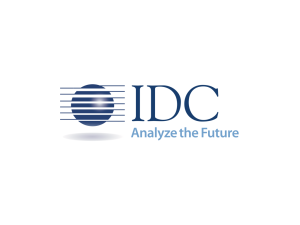International Data Corporation (IDC), IT and communications market intelligence and events firm, today brought together more than 150 of the top IT end users from across the Kingdom for th e first day of its prestigious Saudi Arabia CIO Summit 2013.
e first day of its prestigious Saudi Arabia CIO Summit 2013.
Held at the InterContinental Jeddah, and running under the theme ‘Seize the Moment: Transform, Innovate, Collaborate’, the two-day event aims to highlight the major issues topping the CIO’s agenda for the coming 12 months.
IDC’s vice president and managing director for the Middle East, Africa, and Turkey, Jyoti Lalchandani, got the day’s proceedings underway by welcoming the gathered delegates to the third annual installment of the IDC Saudi Arabia CIO Summit. He then outlined the recent changes that have taken place in ICT spending patterns, ICT user requirements, and transforming business models.
Frank Gens, IDC’s senior vice president and chief analyst, followed by dissecting the so-called ‘3rd Platform’ IT environment. He explained that from 2013 to 2020, about 90% of new CIO investment in Saudi Arabia will focus on 3rd Platform technologies and solutions – offerings that represent just 25% of today’s IT budgets. “This domination of the strategic new IT investments makes the 3rd Platform the most important part of the IT marketplace for CIOs to master, with investment in the rest of IT barely growing,” he said. “Indeed, IDC believes at least 80% of the CIO’s strategic energy and investments must now focus on strengthening the 3rd Platform capabilities of their departments, a sure-fire sign that the Saudi ICT market is making very real progress.”
The presentations continued with Joe So, vice president of sales for Huawei’s Middle East Enterprise Business, explaining how businesses can make more sense of their unstructured data and remain ahead of the game by implementing effective storage and processing strategies that specifically address the unique threats that target Big Data. He was followed by Johnny Karam, regional vice president at Citrix, who offered advice on balancing security risks with the demands of highly mobile workers. With the PC era making way for the cloud era, he stated that the need for mobility is now at the top of the CIO agenda, and went on to explain that this must go beyond the simple introduction of virtual desktop infrastructure (VDI) to include effective strategies for managing the unique challenges and dynamics encountered when transitioning to mobile work styles.
Ronald Gilmore, global ITS coverage and industry sales leader at IBM, then took to the stage to assess the transformative role that ICT is set to play in urban development over the coming years. With around two-thirds of the world’s population set to live in cities by 2050, he detailed the anticipated rise of ‘smart cities’ that have been specifically designed to collect data, analyze it, and use it to improve the quality of city life, be that by making the traffic flow more smoothly, helping the police increase public safety, or improving the provision of energy and healthcare.
This was followed by a session from Basil Ayass, regional marketing director at Dell, who discussed how progressive CIOs are looking to transform their traditional IT business models into an IT-as-a-service (ITaaS) model through which consumers of IT have greater transparency and choice of the services they consume. Dr. Jarallah AlGhamdi, CIO of the Ministry of Education then presented a case study outlining his ministry’s implementation of a sophisticated education management system that provide IT services for 33,000 schools and a government resources planning system that provides HR, finance, and SCM functions to all MoE departments and branches.
The delegates were then split into two individually themed parallel sessions. The first one, chaired by IDC’s research director for software and IT services, Ranjit Rajan, titled ‘Balancing Agility and Control in the Face of Continuous Change’, and featuring speakers from Stonesoft Corporation, Red Hat, VMWare, and Websense, the first session addressed the theme of ‘Balancing Agility and Control in the Face of Continuous Change’. The alternative session, titled ‘The Innovative CIO: Driving a Technology-Centric Vision for Business Transformation’, was chaired by Matthew Eastwood, IDC’s group vice president for enterprise platform research, and included the thoughts of senior representatives from Wipro, Cognizant, Software AG, and ITC.
To ensure the very latest technology developments are covered at the Saudi Arabia CIO Summit 2013, IDC has partnered with some of the world’s foremost ICT vendors, including the following Summit Partners: Huawei, Citrix, IBM, and Dell. It has also aligned with Fujitsu, Schneider Electric, F5 Networks, and Advanced Electronic Company as Platinum Partners, and with Stonesoft, Cognizant, Wipro, Software AG, VMware, Red Hat, Websense, and Integrated Telecom Company as Gold Partners. FVC, Polycom, and Blue Coat are the event’s Silver Partners, ORSYP and Cyberoam are Exhibit Partners, and Interactive Intelligence and Future Systems are Lunch Partner and Gala Dinner Partner, respectively.
Day Two of the IDC Saudi Arabia CIO Summit 2013 begins at 09:00 tomorrow morning with a panel discussion featuring Dr. Khalid Al Odhaibi, executive director of Health Informatics and Information Technology at King Fahad Medical City, Rashed Al Othman, CIO of Bank Al Bilad, and Abdullah Al Attas, IT General Manager at SAMACO, on the importance of aligning technology with the wider strategic interests business.





